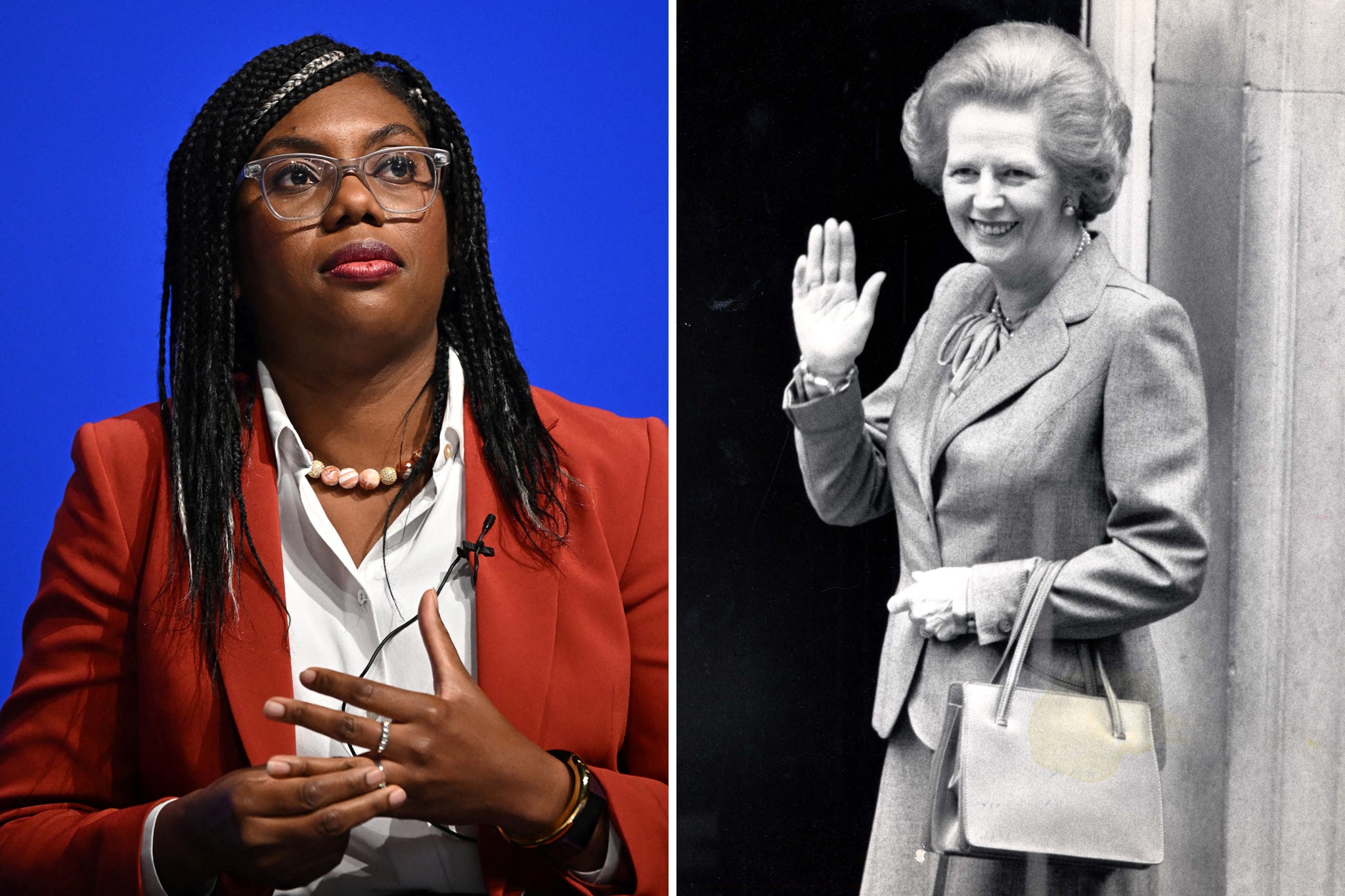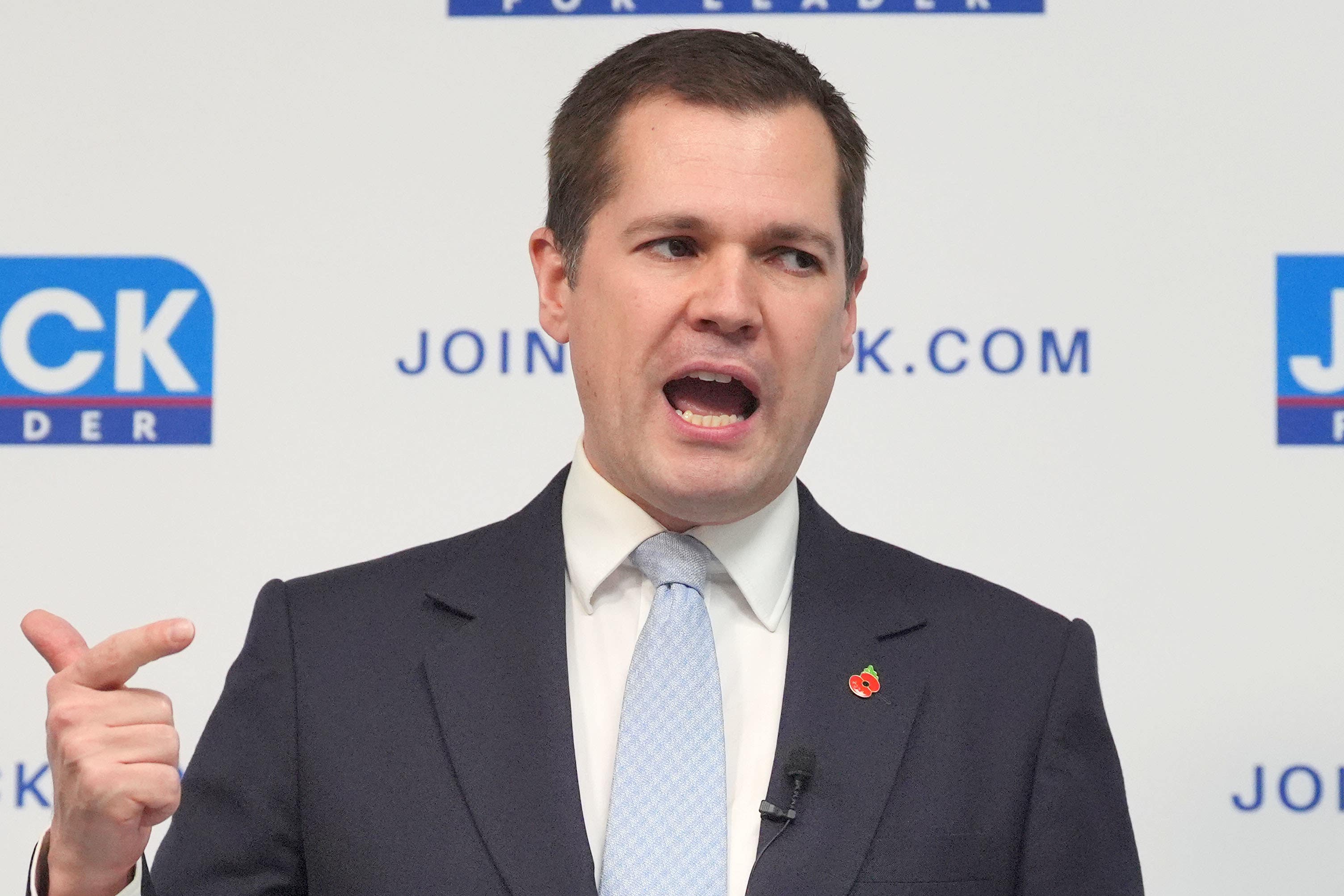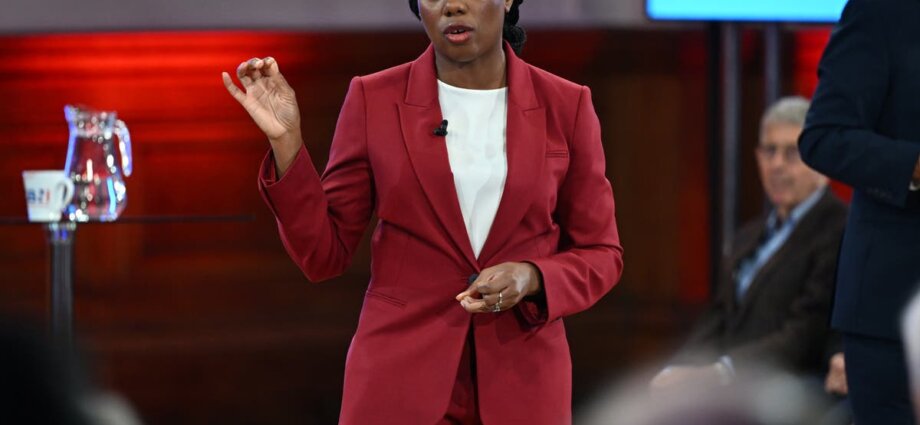Defiant Kemi Badenoch has vowed she will not give up her hard-hitting style, saying: “This is what always happens to strong women. If you don’t play ball, then they will come after you.”
The favourite to become Tory leader next month was responding to claims by Tory critics that she had been “too abrasive” and also to Doctor Who actor David Tennant, who said he wished she would “shut up”.
In a candid interview with Independent TV, she said: “People know that I’m pretty tough. I’m not scared. I will always do the right thing, and I won’t be quiet when it is time to speak up.”
The former business secretary was clearly hurt by one jibe by a Tory MP saying she should spend more time being a mother, retorting: “All I want to do is spend time with my children.”
But she also said she was “flattered” by comparisons with another outspoken female Tory leader, Margaret Thatcher – adding there were “similitaries” between them.

Noting that Thatcher was famous for her trademark handbag, she said her equivalent was her braids and distinctive round-rimmed spectacles.
“The comparisons with Lady Thatcher are flattering, but I am Kemi. I am not her. We have similarities. She was a scientist. I was an engineer, for example.”
Thatcher, she said, focused on new policies to build a “framework for the future – that is what I want us to do”.
In a wide-ranging interview, Ms Badenoch also:
- Discussed her belief Britain will have to leave the European Convention on Human Rights (ECHR), despite not making it a policy like her opponent Robert Jenrick
- Suggested that two-tier policing was a problem in the UK
- Insisted that officers should be backed to the hilt over the Chris Kaba killing
- Claimed the party’s future “is not about right and left” but “right and wrong”
Ms Badenoch admitted she was still taken aback by criticism over her stance on trans issues from David Tennant at an LGBT+ awards ceremony earlier this year, where he said from the stage that he wished the then-equalities minister would “shut up”.
She said: “I was surprised by it, and it was very important that I spoke up. One of the things that I found is that there are a lot of women who feel voiceless. There are a lot of women who have been told to shut up. There are a lot of women who have been sacked from their jobs for asking for single-sex spaces, for women-only toilets, for saying biological sex is real.
“If I, the then minister for women and equalities, as I was at the time, also shuts up because a TV actor tells me to, what signal am I sending to them?
“This is what always happens to strong women. If you don’t play ball, then they will come after you.”

When it was put to her that right-wing Conservative “strong women” like her or former rival Suella Braverman are subject to this sort of abuse more, Ms Badenoch did not disagree.
“I think that the stronger the personality and the more unusual the politician, the more likely they are to get very strong reactions from people. And actually, I think that that’s something that’s going to be very helpful for us to cut through in opposition. We need a leader who’s going to cut through.”
Her campaign has been dogged with questions about whether she is “too abrasive” or divisive to lead a Tory party which has been characterised more by its infighting in recent years than attacks on its opponents.
She describes the claims that she is a puppet of former cabinet colleague Michael Gove as “very strange” but far from new, and notes that her supporters range from former One Nation group chair Damian Green on the party’s left to Brexiteer former European Research Group chair Steve Baker on the right, and also include two ex-leaders in Iain Duncan Smith and William Hague.
She added: “There’s only one unity candidate in this election, and that is why all of the ministers who work with me in the department for business and trade are supporting me, whether they’re ex-MPs or current MPs, ministers.”

Ms Badenoch drew a line with her opponent in the final two, Robert Jenrick. His campaign has been defined by policy such as leaving the ECHR, while she has deliberately avoided making many policy decisions.
However, she does not necessarily disagree with Mr Jenrick’s analysis on the ECHR.
“I think we will probably have to leave the ECHR. But if we left today, we would not deport any more people, because that wasn’t the only reason that was given for the Rwanda plan not working. There are other things like the Refugee Convention, Modern Slavery Act, the Human Rights Act.”
She also suggested there was a problem with two-tier policing in the UK and was highly critical of the way Keir Starmer handled the rioting after murders in Southport.
“We need to make sure that we show that we are treating everybody equally. This ‘equality under the law’ principle is absolutely key. And I think that Keir Starmer got his response to those Southport riots wrong by focusing on the mistake that the people made in terms of identifying the perpetrator, rather than focusing on a huge tragedy that happened.”
She has made a career of taking on the so-called culture wars, and makes no apologies for her tough stance insisting that the police should be supported in the Chris Kaba shooting case and decrying those who put claims of “institutional racism” above personal responsibility.
But Ms Badenoch rejects claims that a leadership final between her and Mr Jenrick represents a move to the right: “I tell people that it’s not about left or right anymore. It’s about right and wrong.”











